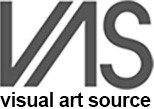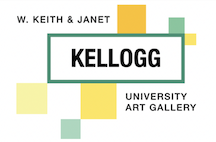Prompted by the memories of childhood hours spent along the river and among the forest trees, Fred Rose has grown to be an artist with a nature that is, in itself, defined by nature.
Reminiscent of artists like Isamu Noguchi, David Nash, Giuseppe Penone and Martin Puryear, Rose captures a spectrum of traditions in wood from utilitarian woodwork to carved and assembled wood sculpture. He delightfully engages the viewer with a variety of intriguing woodwork techniques of which the boundaries of each is often blurred. His apparently functional work, such as a wooden bowl, more often than not, unexpectedly becomes a sculptural statement of the adaptive powers of nature and the human affects on our environment. Concurrently, Rose's clearly sculptural and assembled pieces act as visual poetry professing the nature of the physical world and the quirks of humanity.
In Poems, Folklore and Ghost Stories, Rose shows how his artwork is affected by the language and folklore of wood, which adds to the multi-faceted layers of his work and the creativity, irony and whimsy of both his artwork content and clever titles. In chopping down a tree for firewood, the wood inevitably becomes a witness to the human ghost stories told around the campfire – but the true ghost story belongs to the wood itself, whose tree spirit observes while living a ghost story of its own.
Fred Rose amusingly addresses the ironies of being human by observing our interaction with the natural world: how we deal with our gardens and trees by routinely pruning and grooming them, while enjoying vacations in jungles and forests where a wilderness of vegetation is naturally overgrown. He observes how we tear acres of local trees down in the cities, and dispose of them, to build housing in its place made by chopping down trees that grow in forests somewhere else. Through his wood exploration, discovery, and the what he fondly calls wood anomalies, Rose's work addresses how living things respond to adversity, how nature adapts to its environment, and how the human fingerprint is found embedded in the world.
Besides the fact that books and paper are by-products of wood, Rose has been continuously affected by all forms of writing about wood, particularly the writings of Eric Sloane, the American landscape painter and author of illustrated works of cultural history and folklore, and John Seymour, a prolific and early author in the self-sufficiency movement. Seymour was an environmentalist, agrarian, and activist; a rebel against consumerism, industrialization, genetically modified organisms, cities and cars; an advocate for self-reliance, personal responsibility, self-sufficiency, conviviality, gardening, caring for the earth and soil. Elements of this idealism and philosophy are found throughout Rose's body of work. After reading The Brother Gardeners by Andrea Wulf and The Tree by Colin Tudge, Rose also became interested in the naming of trees and their family and genus relationships, as well as the confusion between terms that woodsmen, botanists, and lumbermen use. This can be seen in the ironic play-on-words with his artwork titles, and the inclusion of both the colloquial names for the types of wood he uses as his media, along with the Latin and Greek derivations used for the plant genera and tree families.
With the tenacity of a lumberjack, and the curiosity of a botanist, Rose captures the essence of what it is to be human – scars and all – through the "eyes" and "voices" of trees, translated by the wood he uses in each of his bodies of work. From his earlier "observant gardener" works, to his on-going masterwork The Poem the Lumberjack Whispers to His Ax, the Ghost Posts and Stumps Complicated Series, Fred Rose continuously reveals the nature of humanity, through the nature of trees and wood.
"With a handful of basic techniques anyone can build a table. However, planting a tree, watching and nurturing its growth, cutting it down when it's dying, splitting it as a cord of wood with an ax, and burning it will teach you more about the actual nature of wood."
Trained in both ceramics and sculpture, Rose has been making art for over 30 years, and has specialized in woodworking for the last 22. Cal Poly Pomona and the Huntley Gallery are very proud to present artist Fred Rose and his ingeniously conceived sculptures that evolve from a process of wood exploration, curious observations of nature, and unique urban discoveries, produced with humor and playfulness to create his own visual poetry, with references to wood and tree folklore, and reminiscent of the ghost spirits of trees long gone.
Curated by
Michele Cairella Fillmore, Director
W. Keith and Janet Kellogg University Art Gallery and Don B. Huntley Gallery






